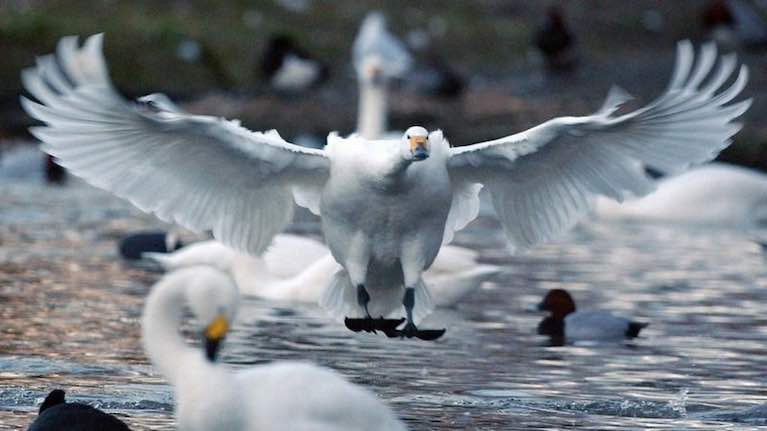About the Golden Globe Race
The Golden Globe Race is the original round the world yacht race. In 1968, while man was preparing to take his first steps on the moon, a mild mannered and modest young man was setting out on his own record breaking voyage of discovery. Off shore yacht racing changed forever with adventurers and sailors, inspired by Sir Robin Knox-Johnston, following in his pioneering wake. Nine men started the first solo non-stop sailing race around the World. Only one finished. History was made. Navigating with a sextant, paper charts and an accurate and reliable time piece, Sir Robin navigated around the world. In 2018, to celebrate 50 years since that first record breaking achievement, the Golden Globe Race was resurrected. It instantly caught the attention of the worlds media as well as adventures, captivated by the spirit and opportunity. The original race is back.
The Golden Globe Race: Stepping back to the golden age of solo sailing
Like the original Sunday Times event back in 1968/9, the 2018 Golden Globe Race was very simple. Depart Les Sables d'Olonne, France on July 1st 2018 and sail solo, non-stop around the world, via the five Great Capes and return to Les Sables d'Olonne. Entrants are limited to use the same type of yachts and equipment that were available to Robin Knox-Johnston in that first race. That means sailing without modern technology or benefit of satellite-based navigation aids.
Competitors must sail in production boats between 32ft and 36ft overall (9.75 10.97m) designed prior to 1988 and having a full-length keel with rudder attached to their trailing edge. These yachts will be heavily built, strong and steady, similar in concept to Robin's 32ft vessel Suhaili.
In contrast to the current professional world of elite ocean racing, this edition travels back to a time known as the 'Golden Age' of solo sailing. Suhaili was a slow and steady 32ft double-ended ketch based on a William Atkins ERIC design. She is heavily built of teak and carried no computers, GPS, satellite phone nor water-maker, and Robin completed the challenge without the aid of modern-day shore-based weather routing advice. He had only a wind-up chronometer and a barograph to face the world alone, and caught rainwater to survive, but was at one with the ocean, able to contemplate and absorb all that this epic voyage had to offer.
This anniversary edition of the Golden Globe Race is a celebration of the original event, the winner, his boat and that significant world-first achievement. Competitors in this race will be sailing simple boats using basic equipment to guarantee a satisfying and personal experience. The challenge is pure and very raw, placing the adventure ahead of winning at all costs. It is for 'those who dare', just as it was for Knox-Johnston.
They will be navigating with sextant on paper charts, without electronic instruments or autopilots. They will hand-write their logs and determine the weather for themselves.
Only occasionally will they talk to loved ones and the outside world when long-range high frequency and ham radios allow.
It is now possible to race a monohull solo around the world in under 80 days, but sailors entered in this race will spend around 300 days at sea, challenging themselves and each other. The 2018 Golden Globe Race was a fitting tribute to the first edition and it's winner, Sir Robin Knox-Johnston.
Background on Don McIntyre (61) Race Founder
Don is an inveterate sailor and recognised as one of Australia s greatest explorers. Passionate about all forms of adventure and inspiring others, his desire is to recreate the Golden Age of solo sailing. Don finished 2nd in class in the 1990-91 BOC Challenge solo around the world yacht race. In 2010, he led the 4-man Talisker Bounty Boat challenge to re-enact the Mutiny on the Bounty voyage from Tonga to West Timor, in a simil
























































